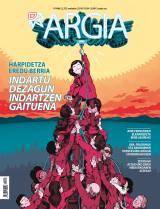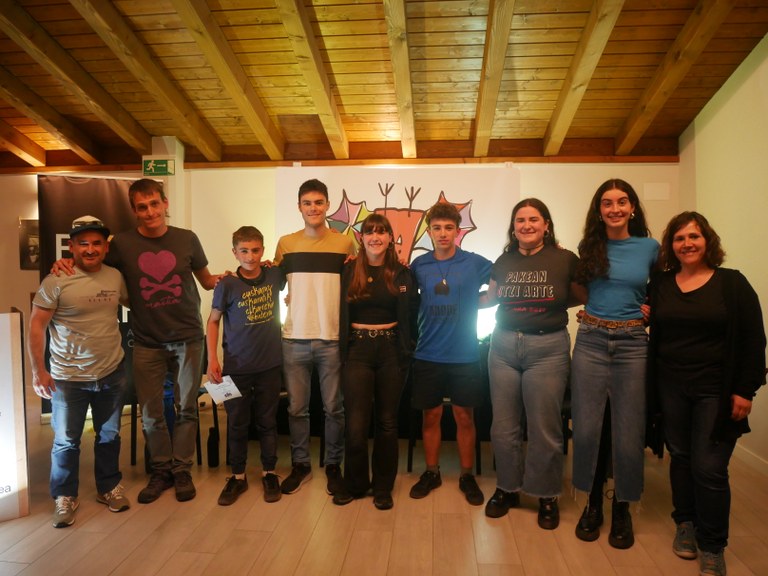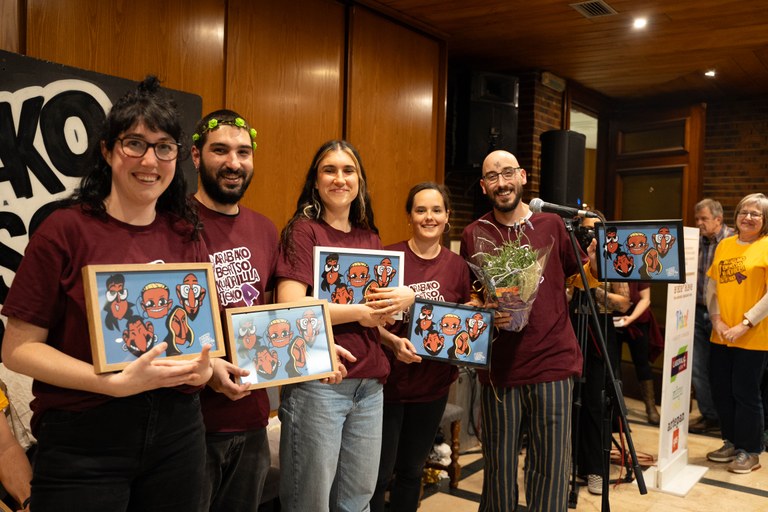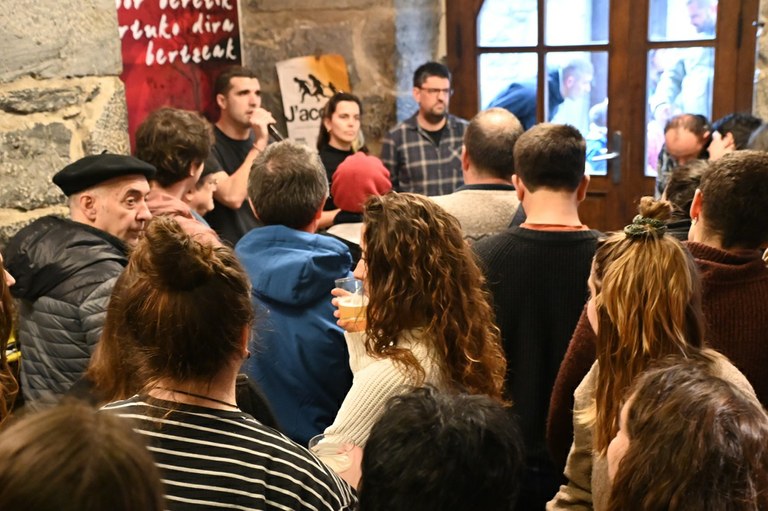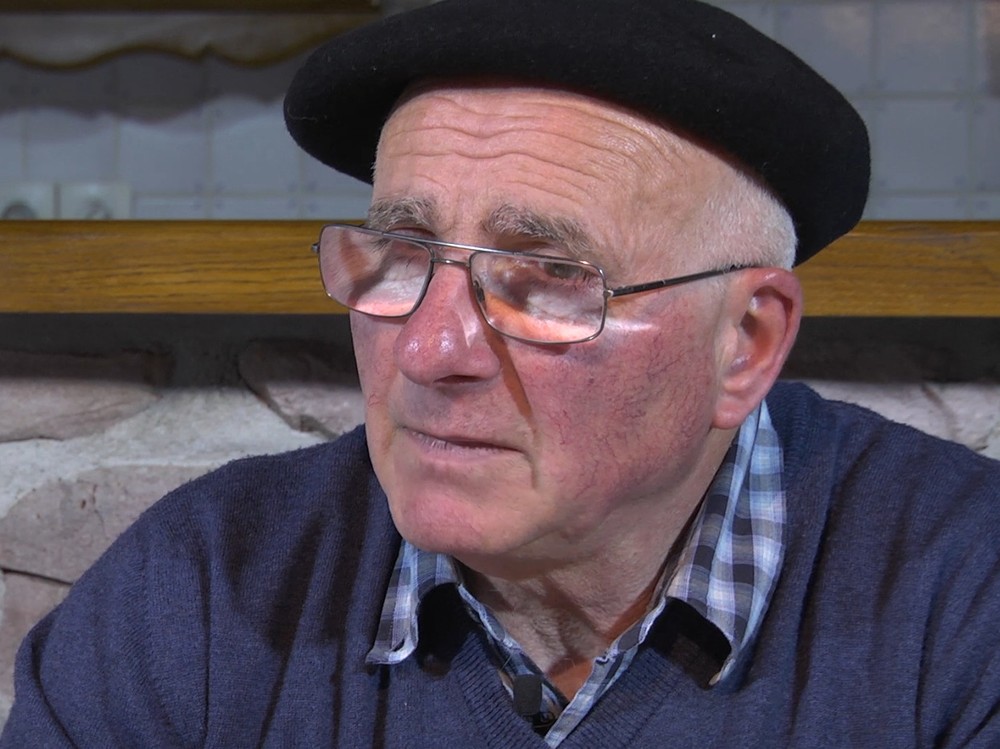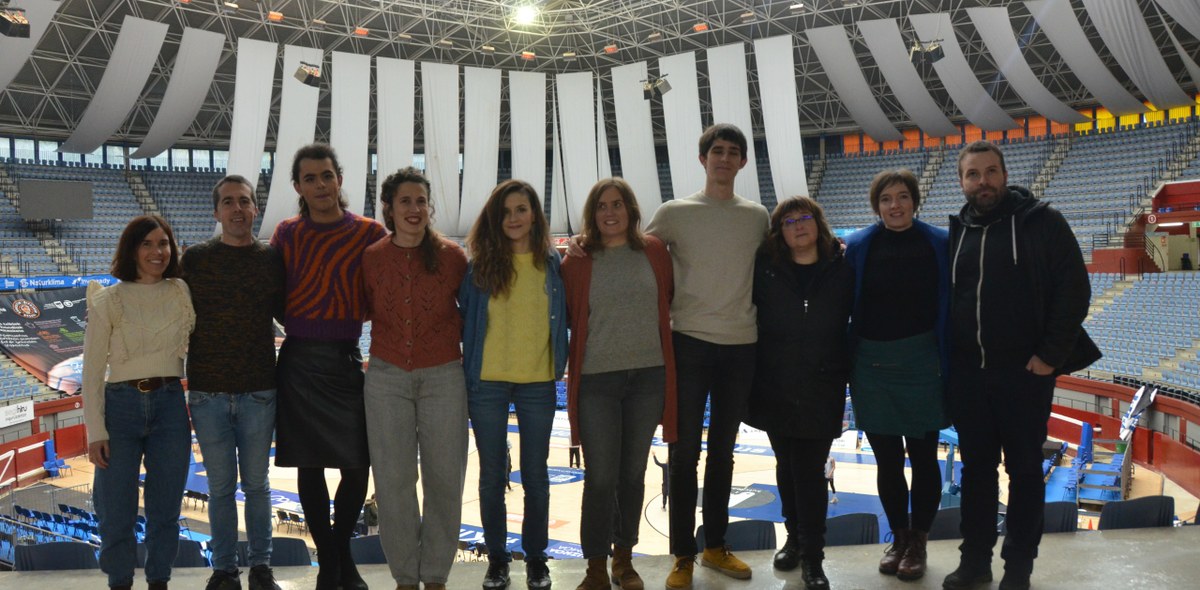Create space with wings
- In the Txori berriketaria collection of bertsolari Joan Batista Elizanburu, the bird weaves a connection between the place where it was created and exile. It brings news to an evil, almost captive and lost migrant, far from home. It's eight coplas framed by a popular, quiet and deep sound. Some people think that the melody can also be from Saratarra. In any case, when they're singing, we're filled with the romantic emotion, even the moisture of the eyes.

We Basques are melancholy people. When we are in the village, customs, landscapes or language, among other things, make our hearts grow. But when we walk away, the people, with their lights and their shadows, take us away. With regard to fishing, grazing, the search for gold, the most common trades, political problems and the unemployment of young cults today, we have always had an excuse to leave the people.
My God, it has
always been merciful
for a miserable desire to
leave the place I was in.
As soon as the first
pellejo begins, I have always
come, through the skirts of my village, a
little prodigy of flowers covering the trees.
My mother, while we were repairing bags of bread in the kitchen, sang to us: He had studied in Paris during his tenure periods after the Second World War. In 1999 the editorial Elkar published the album Elizanburu that twenty-five stars of Iparralde molded, and Txomin Artola, Beñat Axiri and Frantxua Irigoien gave a Txori Berriketaria, a work that Maddi Oihenart recently collected in the album Doi with the help of Jeremy Garat.
Joan Batista was born in Sara in 1828 and was led by death in the early days of 1891. He was a terrible bertsolari in the papers, never going to the plazas. He was the author of the costumbrista novel Piarres Adame (1888), which he published in Pau, and which gave us an authentic taste of healthy joke in a very original thief. At the seminary of Larresoro, being a seminarian, along with the famous Zaldubi, he entered the army, in the background he became known as a travelling judge by Lapurdi.
Fatigued to have
come to me
so
far, I had its most tree site cercano.En the top of the hill
is
sleeping a leg that has its
head under the wing, under the pen.
The bird brings to the poet the image of peace. It should be noted that Elizanburu, captain of the French army in 1870, was held prisoner in the area of Metz, in the hands of the Germans. He was released in 1871, when Napoleon III fell. He returned to Sara. The talking bird had written it a moment ago, in the previous fall. At least one word brings us the echoes of pain.
Anton Abadía Urrustoi won the Elizanburu Gordo at the Floral Games held in Sara in 1871. He had presented them in 1869 under the nickname of Doiharçabal de San Juan de Luz. Moreover, for a long time it was believed that these coplas were of the scholar Martín Guilbeau, until he, when in 1897 he paid tribute to Elizanburu in Sara, clarified the case.
The song, immediately, had a training success. In the south, after the Carlist Wars, when the outbreaks were suppressed, people began to move to America en masse, as well as in the north, where, after the French revolution, there were not many outings for the youth and the elderly here. Say that for boys who have shot themselves in luck, then military service lasted five years and that exile was salvation for many.
Remember the new
ones of the beloved people.
My father, my mother,
was crying leaving me.
Talk about
your relatives and good friends:
He talked about everything he
loved me without forgetting.
In the late nineteenth and early twentieth centuries, migratory routes were methodically drawn throughout the Basque Country. At Donibane Garazi, for example, the well-known Charles Iriarte company was interested in the details of the tour to California, Idaho, Wyoming, Arizona or Nevada, offering train and boat tickets, papers, passports, different permits, sometimes travel suits, pieces and bags. The dream of the distant mojones had overshadowed several thousand beings. In America, it was rapidly and easily enriched. The peoples were invaded by the new generations of Americans who repudiated life. The others, desperate for the hope that escaped them, were rooted in desolate camps and could not return home in the name of honor.
The
Mauleko Ikertzaleak Association analyzed a couple of months ago the specifications of the company Alexis Vigné (1855-1915) found on the hillside of a landfill in Atharratz: The lists of women and men who wanted to go from Salazar, Aezkoa, Roncal, Basabürüt, Pettarri, Amikuze or Oztibar to Argentina, Chile, Uruguay, are spectacular to realize the human magnitude of blood loss from these lands. Economic reasons, of course, but also the desire to escape the explosive control of small peoples.
Let them have
a chat:
Don't be afraid
to go down so close.
Tell me, you've stared at the
window,
in
silence, for in the Hungarians you were looking for words of comfort.
We
imagine them emptying houses, flying twins of brother and sister in the shadow of the bird that Elizanburu explains so well to us. The first was left in the farmhouse, the second was cured, the other was a soldier or a serora, the rest became a nutrient of the emigration agents. Migration has always been a traffic of fertile people. Also in ours.
We will never know what kind Sara's bird was. An undetermined bird approaches the poet window, half of the barrotes in jail, or the thick borderline of desert pain, seemingly peaceful, active, weak like a hurricane, humble, but the sea, the mountain, or the urban space can annoy him by bringing news of the house between the peaks:
Rest,
sleep, dear bird!
She's waiting
for you here near you.
Here's the water crumbs
in the
window. But
when you've remembered the news!
A fully broken bertsolari believes that the bird doesn't need anything to fly the air, the gift of singing, a couple of grains and an open sky. People, on the contrary, are hungry, ruminating, anxious, because the malefactor never has money, no fund, no power, no honor, no science. Perhaps the poet hides within the ambition of appropriating the personality of the bird:
God's
goodness has not forgotten you.
Where do you want
to find your food?
What do you need? Not a little bit
of water, not a grain,
not a grain, in
return you have fun singing the whole forest.
Migrants, incarcerated or lives for the lonely bird's flights are urgent. While sleeping he represents the most deplorable events, the worst, in line with the pessimism of the base Basques. Like a postman, the bird acts as a messenger, a symbol of many email companies around the world:
I'm terrified,
slept and shaky.
There is no
misfortune among those who love me.
If so, please, Loretto,
upon coming back
to the city, wears a
cry over the rudder.
Urepel's Xalbador prolonged in the 1970s the curse of the discharges of people to America, in terrible berts he sent to his son: had the work come here, no one else could have left the country:
Follow honestly in
your
life in such
a way that
your Son can
go no more than I...
The verses of Elizanburu upset us to the present day: but who has not had a bitter taste of exile in the Basque Country? In all countries with large migratory waves, songs that have swollen with nostalgia, popular pain, desire to go and birds. Roads, however, are not safe and full of atolondrados.
I fear
that he will not come
back again when the
boy has left during the time of the fall of the leaves.
If you take a stake
in my trap, please
let me be brought
to the poor man, who is at liberty.
Maiatzaren 8an hasiko da Bizkaiko Bertsolari Txapelketako sailkapen fasea. Zortzi saio bikoitz jokatuko dira maiatzeko eguenetan. Sarrerak eskuragai daude bertsosarrerak.eus atarian.
Asteburu honetan hasiko da Gaztetxeak Bertsotan egitasmo berria, Itsasun, eta zazpi kanporaketa izango ditu Euskal Herriko ondorengo hauetan: Hernanin, Mutrikun, Altsasun, Bilboko 7katun eta Gasteizen. Iragartzeko dago oraindik finala. Sariketa berezia izango da: 24 gaztez... [+]
Vagina Shadow(iko)
Group: The Mud Flowers.
The actors: Araitz Katarain, Janire Arrizabalaga and Izaro Bilbao.
Directed by: by Iraitz Lizarraga.
When: February 2nd.
In which: In the Usurbil Fire Room.
In recent years, I have made little progress. I have said it many times, I know, but just in case. Today I attended a bertsos session. “I wish you a lot.” Yes, that is why I have warned that I leave little, I assume that you are attending many cultural events, and that you... [+]







